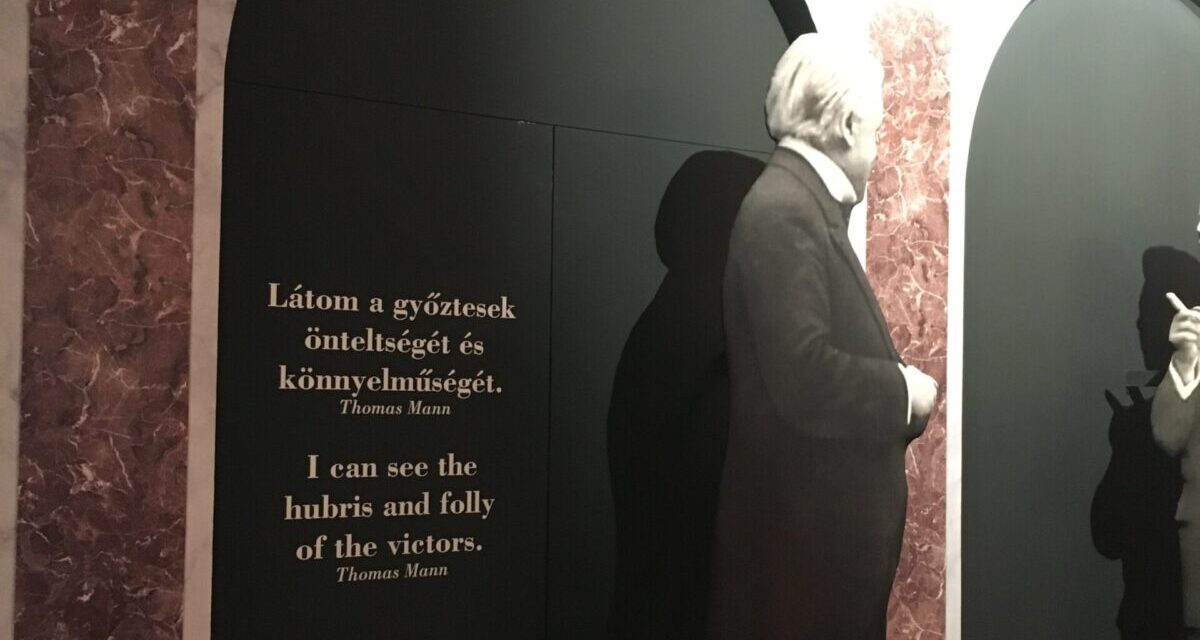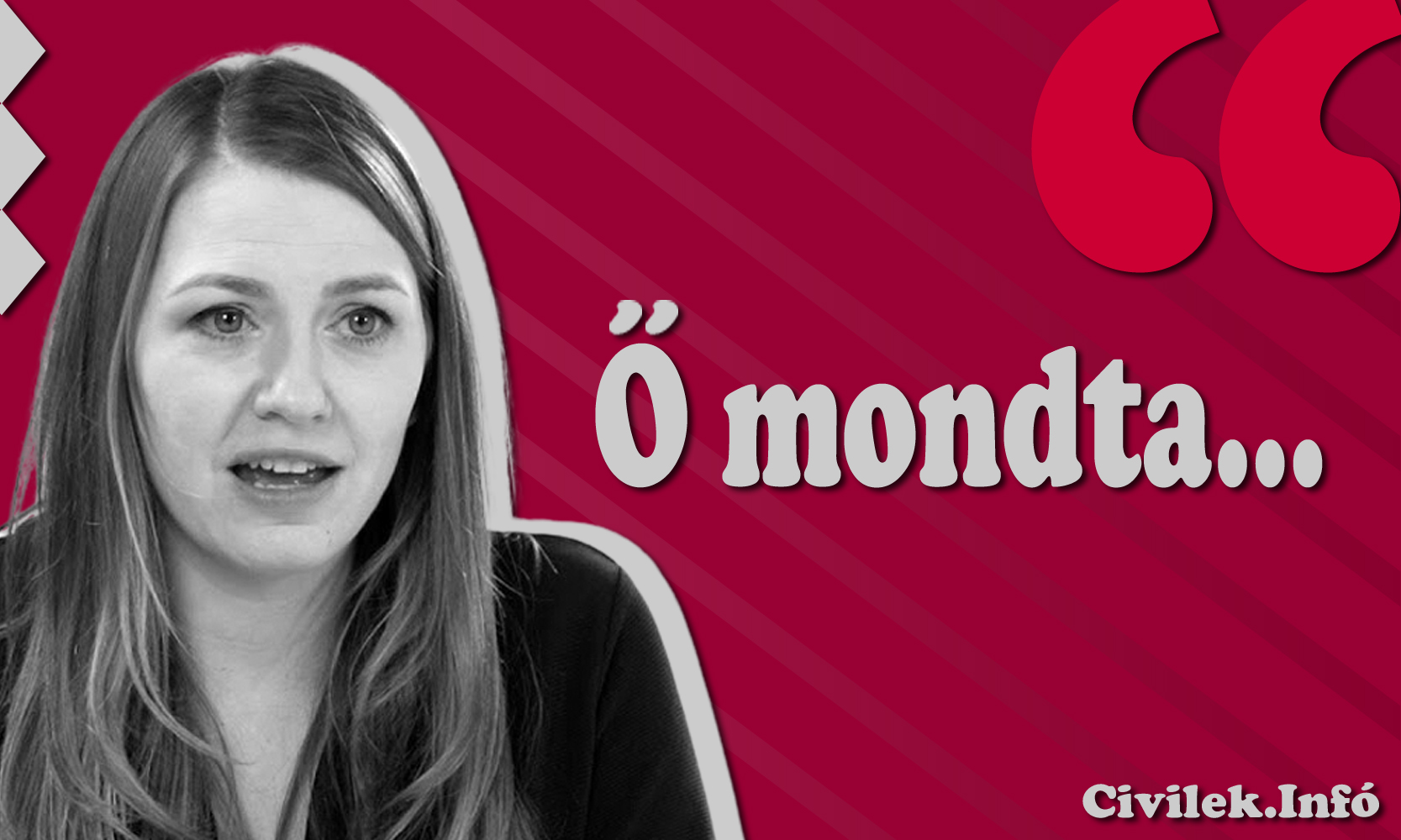I think that now, in the age of national and patriot traitors, it is especially important to distinguish Hungarians in spirit from those who only speak Hungarian.
On June 4, 1920, in Paris, we lost two-thirds of the territory of our thousand-year-old country, all of our rock salt and then-known hydrocarbon wealth, 98 percent of our ore mining, 30 percent of our coal production, and 84 percent of our forests.
Heartless scoundrels tore apart the organic fabric of the national economy, most of the natural resources came under foreign control, and the manufacturing industry was largely left without a supply of raw materials in the truncated Hungary. They dismembered the unified water management of the Carpathian basin, and we became a low-water country. We suffer from floods and are forced to accept the filth of the rising waters.
The border from Bratislava to Arad - cut into the flesh of the Hungarian block - was defined by the railway built on the edge of the Great Plain and the mountains in such a way that the railway would reach the small neighboring countries everywhere. Benes needed the Danube, which is why he got the Hungarian-style Csallóköz and Komárom, as well as Bratislava, which city was only fifteen percent Slovak at the time! Despite the fact that the Germans chose Hungary in their national assembly. Austria, the initiator of World War II, also received a share of the prize! One third of our Hungarian people and more than two thirds of our monuments came under foreign rule. We can "thank" France for all this!
But it is also worth taking stock of what we have lost emotionally.
There was the huge protective arm of the Carpathians; Bratislava, our first Hungarian language monument, the site of the Deathly Hallows, the coronation city, where the fight for the Hungarian language took place during the reform era; Kassa, where the noble prince Ferenc Rákóczi returned home from exile in 1906; Munkács, where Ilona Zrínyi, during the three-year siege, walked on the castle wall holding hands with her infant son, thus showing her determination to the imperial army; treasured Cluj, the birthplace of King Matthias; Vajdahunyad, the nest of the Hunyadians, which the Romanian government turned into Dracula's castle; Gyulafehérvár, where the best-preserved cathedral of the bishoprics founded in the Árpád era stands; Brasov, with Europe's easternmost Gothic cathedral; Nagyvárad, the city of King Szent László and Ady; Arad, the Hungarian Golgotha; the wilderness church in Arac, a monumental monument of the southern Hungarians before Mohács; and Fiume, Hungary's gateway to the sea. Mária Terézia did not give Fiumé to Hungary as a gift, but received its Hungarian population in exchange for the counties of Szerém, Pozsega and Valkó, which were lost during the Turkish wars.
From the small fishing village, we Hungarians built the fourth largest harbor in the Adriatic at that time.
"Letter to my son - for Trianon memorial day" presents this pain
"But I never said that word. And now I can't even say it anymore, just this: something hurts that isn't there. At some point, you will hear about a painful miracle of life - that someone whose hands and feet have been amputated still feels the pain of missing fingers for a long time. When you hear this: Cluj, and this: Transylvania, and this: Carpathians - you will know what I meant".
And the separated Hungarians have to endure: the settlement of their former Hungarian-majority cities with foreigners, the distortion of our settlement names into foreign ones, foreign street names, the replacement of their intimate public statues with statues of persons not connected to the place.
Since then, our monuments have been appropriated, reinterpreted, or, in the worst case, sentenced to silent destruction, and documents have been deliberately neglected in the archives. And Hungarian children across the border study history with a hostile attitude. The visual subjugation of Transylvania is proceeding with steam power, the onion-domed conquest. In Slovakia, the Benes decrees depriving Hungarians of their rights are still in force.
What an international scandal it would be if we kept the Jewish laws in force on the grounds that we do not apply them! In the Carpathian basin, the reduction of the living space of the Hungarians has been going on for well over a hundred years by rough and "subtle" means: resettlement to Hungary; resettlement in homogeneous Hungarian blocks and cities; encouraging emigration by making Hungarian living conditions impossible; the denial of autonomy, for which our former nationalities fought before the First World War; the withering of the Hungarian education network; discrimination in EU subsidies; In Romania, there is often filth, even in the parliament, and sometimes physical violence. The consequence of all this is evidenced by hundreds of depopulated Hungarian churches and abandoned Hungarian cemeteries in the Carpathian Basin.
Perhaps János Kádár's greatest sin is that, unlike the successor states, he weakened the national feeling in an extreme way. We have come to the point where today the masses have become indifferent, sometimes even hostile, and nowadays we have to raise the painful question, who is Hungarian?
Miklós Patrubány, the president of the World Congress of Hungarians, gave a striking answer to this question on May 25, 2000, at the opening conference of the congress: "Hungarian is the one who hurts in Trianon".
I think that now, in the age of national and patriot traitors, it is especially important to distinguish Hungarians in spirit from those who only speak Hungarian.
On June 28, 1914, the heir to the throne Ferenc Ferdinand and his wife were murdered in Sarajevo by the Serbian student Gavrilo Princip. Hungarian Prime Minister István Gróf Tisza was - as long as possible - against the declaration of war, because he foresaw that with war: "...we can win nothing, but we can lose everything" . And so it happened.
It would be good to keep this lesson in mind today!
France's eternal enemy, homogeneous Germanic Germany, could not be dismembered, only its possible ally, the multi-ethnic Austro-Hungarian Monarchy. That is why Hungary, least to blame for the outbreak of the war, was punished the most severely. The thousand-year-old Hungary was executed by trashing the proclaimed Wilsonian principle of self-determination! But God does not beat with a stick. France is resolutely marching towards cultural and demographic suicide, helplessly watching the population change. And we can say that
"Depleted, but not broken,
A nation lives in this country."
Pál Bartha ny. forest engineer
Featured image: Polgári Szilvia/Civilek.Info













